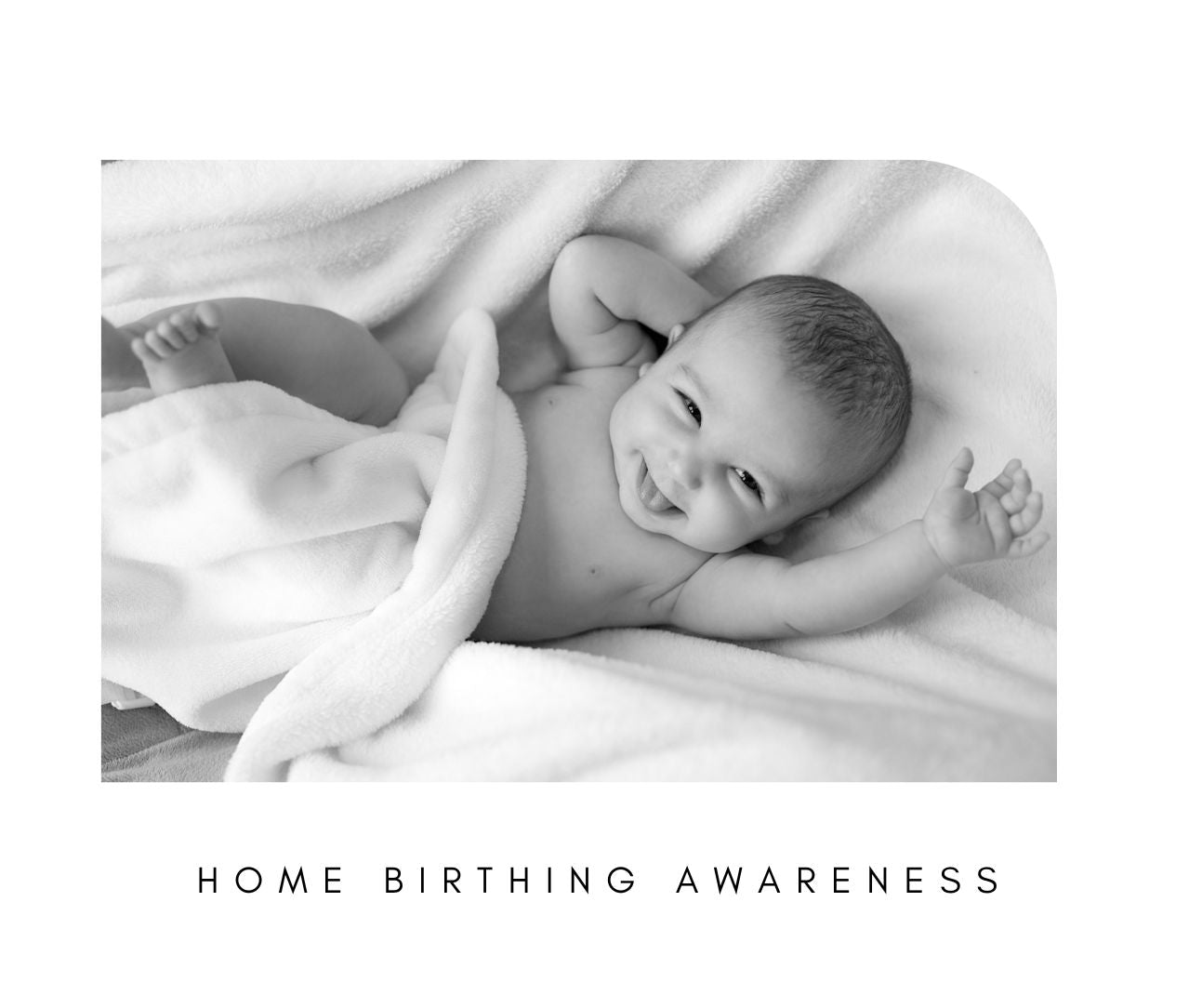Navigating Postnatal Insomnia

Sleepless Nights and New Beginnings: Navigating Postnatal Insomnia
Welcoming a new baby into the world is a joy like no other, but it comes with its challenges. One of the most common issues faced by new mothers is postnatal insomnia. This blog post aims to shed light on the impact of postnatal insomnia, debunk common misconceptions, provide tips for prevention, and explore various treatments. Whether you're a new mother, new father, a health enthusiast, or part of a young family, this guide is designed to help you understand and manage postnatal insomnia effectively.
The Reality of Postnatal Insomnia
What is Postnatal Insomnia?
Postnatal insomnia is a type of sleep disorder that affects new mothers, typically within the first year after childbirth. It's characterised by difficulty falling asleep, staying asleep, or experiencing restorative sleep. The condition can be exacerbated by hormonal changes, stress, and the demands of caring for a newborn.
Impact on New Moms
The effects of postnatal insomnia extend beyond mere tiredness. Chronic sleep deprivation can lead to mood swings, irritability, and even postpartum depression. It can affect a mother's ability to bond with her baby and manage daily tasks, making the early months of motherhood even more challenging.
Common Misconceptions
One of the biggest misconceptions is that postnatal insomnia is just "part of being a mom." While sleep disturbances are common, chronic insomnia is not something to be ignored. Another myth is that it will resolve on its own without intervention. Understanding that it is a serious condition that requires attention is the first step toward recovery.
Why New Mothers Experience Insomnia
Hormonal Changes Post-Childbirth
After childbirth, hormone levels fluctuate dramatically. Oestrogen and progesterone drop rapidly, which can affect sleep regulation. Additionally, the increased levels of prolactin, necessary for breastfeeding, can also interfere with sleep patterns.
Emotional and Psychological Factors
The emotional rollercoaster of becoming a new mother cannot be underestimated. Anxiety about the baby's well-being, the pressure to be a perfect parent, and the overwhelming sense of responsibility can keep new mothers awake at night. Addressing these emotional factors is crucial for improving sleep quality.
Physical Discomfort
Postnatal recovery comes with its own set of physical challenges. Pain from childbirth, breastfeeding discomfort, and the physical demands of caring for a newborn can make finding a comfortable sleeping position difficult. Ensuring that these physical issues are addressed can significantly improve sleep.
The Consequences of Ignoring Postnatal Insomnia
Health Risks
Ignoring postnatal insomnia can lead to several health risks. Chronic sleep deprivation weakens the immune system, making new mothers more susceptible to infections. It can also increase the risk of developing chronic conditions like postnatal depression, hypertension and diabetes.
Impact on Mother-Child Bonding
Sleep is crucial for emotional regulation. Lack of sleep can lead to irritability and mood swings, which can strain the mother-child relationship. It can also affect the mother's ability to respond to the baby's needs, potentially impacting the child's development.
Long-Term Mental Health
Untreated postnatal insomnia can have long-term effects on mental health. It increases the risk of developing anxiety disorders and depression, which can persist beyond the postnatal period. Early intervention is key to preventing these long-term consequences.
Prevention Strategies for Postnatal Insomnia
Establishing a Sleep Routine
Creating a consistent sleep routine can help signal to your body that it's time to wind down. Going to bed and waking up at the same time every day, even on weekends, can regulate your internal clock. Simple bedtime rituals like reading a book or taking a warm bath can also promote better sleep.
Creating a Sleep-Friendly Environment
Your bedroom should be a sanctuary for rest. Ensure the room is dark, quiet, and cool. Investing in a comfortable mattress and pillows can make a significant difference. Consider using white noise machines or earplugs to block out any disruptive sounds.
Mindfulness and Relaxation Techniques
Practicing mindfulness and relaxation techniques can help calm your mind before bed. Techniques such as deep breathing, progressive muscle relaxation, and guided imagery can reduce stress and make it easier to fall asleep. Apps like Headspace and Calm offer guided sessions specifically designed for new mothers.
Effective Treatments for Postnatal Insomnia
Cognitive Behavioural Therapy (CBT)
Cognitive Behavioural Therapy for Insomnia (CBT-I) is a highly effective treatment for postnatal insomnia. It involves changing the thoughts and behaviours that contribute to sleep problems. A trained therapist can help you develop healthier sleep habits and address any underlying issues.
Medication Options
In some cases, medication may be necessary to manage postnatal insomnia. It's important to consult with a healthcare provider to determine the best option for you. Medications such as antihistamines and benzodiazepines can offer short-term relief but should be used with caution.
Natural Remedies
Natural remedies can also be beneficial for managing postnatal insomnia. Herbal teas like chamomile and valerian root have calming properties. Supplements such as melatonin can help regulate the sleep-wake cycle. Always consult with a healthcare provider before starting any new supplement.
The Role of Diet and Exercise
Nutritional Support
A balanced diet can play a significant role in improving sleep quality. Foods rich in tryptophan, magnesium, and melatonin can promote better sleep. Avoiding caffeine and sugar close to bedtime can also make a difference. Staying hydrated is crucial, but try to limit fluid intake in the evening to avoid frequent trips to the bathroom.
The Importance of Hydration
While it might seem unrelated, hydration is essential for overall health and well-being, including sleep. Dehydration can cause discomfort and disrupt sleep. Aim to drink enough water throughout the day, but try to limit fluids in the evening to avoid interruptions during the night.
Exercise and Physical Activity
Regular physical activity can improve sleep quality. Even a daily walk with your baby can make a difference. Exercise reduces stress and tires the body, making it easier to fall asleep. However, avoid vigorous exercise close to bedtime as it can have a stimulating effect.
The Importance of Social Support
Building a Support Network
Having a strong support network can make a world of difference for new mothers experiencing postnatal insomnia. Family, friends, and support groups can offer emotional support and practical help. Don't hesitate to ask for help when you need it.
Partner Involvement
Involving your partner in the caregiving process can help distribute the responsibilities and reduce stress. Sharing nighttime duties, even if it's just for a few hours, can provide much-needed rest. Open communication about your needs and challenges is essential.
Professional Help
Sometimes, professional help is necessary to manage postnatal insomnia. Therapists, counsellors, and sleep specialists can provide targeted interventions. Don't hesitate to seek professional help if self-help strategies aren't enough.
Real-Life Stories and Experiences
Learning from Others
Hearing from other mothers who have experienced postnatal insomnia can be incredibly reassuring. Their stories can provide valuable insights and tips for managing the condition. Online forums and support groups are excellent places to connect with others who understand what you're going through.
Success Stories
Many mothers have successfully managed postnatal insomnia and come out stronger on the other side. Their success stories can offer hope and motivation. Remember, you are not alone, and there is a light at the end of the tunnel.
Expert Opinions
Consulting experts in the field can provide authoritative guidance. Paediatricians, sleep specialists, and mental health professionals can offer evidence-based advice and treatment options. Their expertise can help you make informed decisions about managing postnatal insomnia.
The Connection Between Sleep and Overall Well-Being
Physical Health Benefits
Adequate sleep is crucial for physical health. It strengthens the immune system, supports weight management, and reduces the risk of chronic conditions. Prioritising sleep can significantly improve your overall health and quality of life.
Mental Health Improvement
Sleep and mental health are closely intertwined. Good sleep promotes emotional regulation, reduces stress, and enhances cognitive function. Addressing postnatal insomnia can lead to significant improvements in mental health and overall well-being.
Enhancing Quality of Life
Ultimately, managing postnatal insomnia can enhance your quality of life. Better sleep leads to more energy, improved mood, and a greater ability to enjoy motherhood. Taking proactive steps to address insomnia can make the early months of motherhood more enjoyable and fulfilling.
Final Thoughts on Navigating Postnatal Insomnia
Understanding postnatal insomnia and its impact is the first step toward managing it effectively. By implementing prevention strategies, exploring treatment options, and seeking support, you can overcome this challenge and enjoy the joys of motherhood. Prioritise your well-being and take small steps each day to improve your sleep. If you're struggling, don't hesitate to seek professional help. Your health and happiness are certainly worth it.
~ jinki.com




